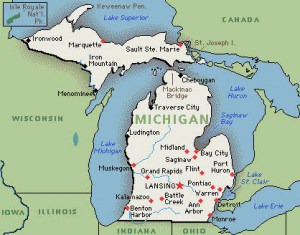 In just the second quarter of 2009, Comcast doled out nearly $3.3 million dollars of their subscribers’ money lobbying elected officials on a myriad of issues, covering everything from executive compensation to sports channels to unionizing efforts.
In just the second quarter of 2009, Comcast doled out nearly $3.3 million dollars of their subscribers’ money lobbying elected officials on a myriad of issues, covering everything from executive compensation to sports channels to unionizing efforts.
Forbes reported last week the nation’s largest cable company has lobbied on:
- the Excessive Pay Capped Deduction Act of 2009, a bill that would stop tax deductions on excessive compensation given to any employee. Excessive pay is defined as any amount above 100 times the average employee’s compensation at the company;
- the Income Equity Act of 2009, which curbs executive pay by limiting tax deductions on pay greater than 25 times that of the lowest paid employee, or $500,000, whichever is greater;
- the Shareholder Bill of Rights Act of 2009, which gives shareholders the right to approve or reject executive compensation packages. Shareholders have long been in contention with Comcast over the near $25 million annual salary paid to CEO Brian Roberts;
- the right to carry regional sports channels on terms favorable to the cable operator, both in terms of channel/package placement and pricing;
- the nation’s Broadband Stimulus program — how the funds would be allocated, on what terms, and for what types of projects;
- the issue of unionization activity at Comcast;
- limits on Comcast’s ability to increase ownership of additional cable-related assets and systems.
Meanwhile, Brian Dickerson, a columnist at the Detroit Free Press has also been noticing that AT&T, promising to bring competition to Comcast in cities like Detroit, came at the price of a trojan horse called “statewide franchising,” an issue we’ve covered at length on Stop the Cap!
Deregulating the cable TV business in Michigan was supposed to be good news for metro Detroit cable subscribers and bad news for Comcast, long the dominant cable provider in our region.
At least, that’s how area legislators justified a 2006 law that streamlined the franchising process for rival cable operators such as AT&T and stripped pesky local governments of their authority to stand up for aggrieved cable customers.
 Dickerson recites a familiar tune to our readers about how AT&T came to the Michigan state legislature in 2006 promising to bring hardcore competition to Comcast, the state’s most prominent cable provider, if only they would permit AT&T to obtain one statewide franchise agreement, allowing them the flexibility to launch U-verse in cities throughout the state without negotiating with each local government first.
Dickerson recites a familiar tune to our readers about how AT&T came to the Michigan state legislature in 2006 promising to bring hardcore competition to Comcast, the state’s most prominent cable provider, if only they would permit AT&T to obtain one statewide franchise agreement, allowing them the flexibility to launch U-verse in cities throughout the state without negotiating with each local government first.
The astroturfers turned up right behind AT&T’s open checkbook (the company spent at least $672,000 in 2006 in Michigan on lobbying and political contributions), touting the benefits of AT&T’s “creative solution” to cable competition. FreedomWorks even invaded one meeting of the Michigan Municipal League and Michigan Townships Association in the spring of that year “to set the record straight.” That really meant representing AT&T’s position, and offering plenty of empty promises to Michigan communities seeking competition and lower prices for their residents.
FreedomWorks rapidly also devolved the debate into a partisan “conservative” vs. “liberal” sideshow, hoping to pick up conservatives that would reflexively adopt a pro-AT&T position if it meant doing battle with “liberals.” And in a two-for-one win for AT&T, the conservative action group also helped jettison Net Neutrality protections.
FreedomWorks President Matt Kibbe was quoted in a December 2006 press release: “To the very end, liberal special interests held out for additional regulatory mandates misleadingly labeled “neutral.” On behalf of more than 12,000 citizen activists in Michigan, I applaud the franchise reforms adopted this week while warning against new efforts in the 94th Legislature to deny basic property rights under the banner of “net neutrality.” We are prepared to defend consumer interests and property rights through relentless grassroots education and advocacy.”
FreedomWorks Michigan Director Randall Thompson concluded, “The issue of franchise reform is evidence that the Freedom Movement is deeply rooted in Michigan. Regular citizens made their voices heard, leading free market think tanks and scholars weighed in on the issue and as a result, public officials adopted good policy.”
Freedom Isn’t Free: Prices escalate across Michigan despite “competition.”
Now, three years after AT&T’s champions in the Legislature crowed that Comcast’s reign as the 800-pound. guerrilla of Michigan cable service was over, Comcast remains the state’s dominant provider, maintains a de facto wire-line monopoly in most its franchise areas, charges higher rates for basic cable service, and has far fewer legal obligations to the subscribers and communities it serves.
Indeed, the story is even worse for Michigan consumers, who in effect paid, as part of their monthly cable bills, for the lobbying and astroturf campaign battle launched against their own best interests and wallets.
The promised competition has arrived in some parts of Michigan, but often at pricing even higher than that charged by the dominant cable company in the area. Many customers enjoy temporary savings as part of promotional new customer offers, that once expired, leave the customer stuck with everyday high pricing. As seen in Tennessee, AT&T U-verse packages compete more on numbers of channels offered, not on the pricing of monthly basic service. A-la-carte channel choice remains unavailable.
In fact, the second biggest winner of the Lobbying Money Party from AT&T ironically turned out to be Comcast. After all, if AT&T was to be granted special provisions for statewide franchising and other deregulatory benefits, why can’t Comcast receive those benefits as well?
It seemed only fair that if legislators were prepared to relieve AT&T of any obligation to negotiate with local governments, Comcast and other cable providers should enjoy the same privilege. But what about the franchise agreements Comcast had already struck in places where AT&T had no immediate plans to compete?
Some legislators suggested that Comcast be required to live up to existing franchise agreements until competitors were offering service to at least 5% of the community’s residents. But when Sen. Nancy Cassis, R-Novi, proposed such a rule, she was defeated by a voice vote — the anonymous roar of Comcast’s many beneficiaries on both sides of the aisle.
As is the case in Tennessee, should a local franchise agreement not be renewed on favorable terms, there is always the possibility of securing that statewide franchise, bypassing local officials, reneging on hard fought agreements on things like:
- Guarantees that cable service would be made available to all residents, from the poorest to richest neighborhoods;
- Cable operators would agree to customer service benchmarks from call answer time to repair call timeframes;
- Provision and funding of local Public, Educational, and Government (PEG) access channels on the basic tier.
And so, three years after the blizzard of cash was long since pocketed, and astroturfers like FreedomWorks moved on to other industry-sponsored causes célèbre, where are the consumers after the “good public policy” applauded by FreedomWorks was adopted?
Absolutely in the exact same place they were before, only worse.
The Michigan Chapter of the National Association of Telecommunications Officers and Advisors says Comcast celebrated the first anniversary of cable deregulation by raising the price of its cheapest cable package by 25% in many communities; rates for other service tiers jumped between 9%-25%.
Brian Brown, spokesman for a consortium of Michigan cable providers led by Comcast, says the price increases reflect the cost of enhanced services subscribers are demanding. “That’s what the market wants,” he says.
Meanwhile, Comcast has shuttered many of the local service locations it was obligated to maintain under franchise agreements, and is waging a federal court fight to move public access programming off the basic cable line-up.
That’s right. The market wants higher prices, no local service locations, and a parade of formerly analog cable channels being moved into digital tiers, necessitating additional consumer expense to rent digital converter equipment for every cable-connected television in the home.
Those are the same consumers whose interests have routinely been ignored by the politicians and the providers, and distorted by their bought and paid for political astroturf groups that hoodwink consumers into believing this is a “right-left issue.”
As the battle for Net Neutrality protections begins again this summer, and as we vigilantly maintain watch and prepare for opposition to any reintroduction of Internet Overcharging schemes, just remember the tale of Michigan and Tennessee and the real agenda of the astroturf groups sure to raise their well-financed opposition to pro-consumer legislation and activism yet again.


 Subscribe
Subscribe

